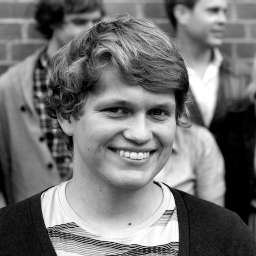Verdi’s Macbeth was his first adaptation of a Shakespeare play, and he wouldn’t return to this playwright until his two final masterpieces, Otello and Falstaff. The story of this operatic Macbeth is very similar to Shakespeare’s original, save for the exclusion of certain scenes and characters, and Verdi tells a compelling story of greed and lust for power. This is in no small part because of one of his most formidable characters: Lady Macbeth.
Adrian Noble’s production sets the story not in 11th-century Scotland, but in a time far closer to us. He draws parallels from the original setting to the dictators of the 20th century, putting Macbeth’s rise to power and subsequent downfall in a new, more familiar context. The sets are dark – almost completely black – which makes for a dramatic contrast with the white clothing (later stained with blood) that Macbeth and Lady Macbeth frequently wear. The witches are dressed as malevolent bag ladies from the 1950s, perhaps a touch too camp, but not wholly inappropriate considering their music. And there are still some very moving moments, especially the opening of the fourth act, which features Scottish refugees. It’s a modern retelling of the story, but one which on the whole stays faithful to the text.
There is no doubt that the star of this show is the Lady Macbeth of Maria Guleghina. Lady Macbeth is often mentioned as one of Verdi’s most challenging roles, demanding an enormous range, a huge voice and good coloratura, and Ms Guleghina almost rises to the challenge. Her opening scene, the letter scene, is on the inaccurate side, with the runs more glissando-like than anything else – Verdi did intend for Lady Macbeth to be sung beautifully, and Ms Guleghina’s voice perhaps lacks that, her interpretation is nonetheless very appropriate for this most evil of Verdi’s female charactes. Further, her performance is ultimately very compelling dramatically. Guleghina shows herself as a fine actress, capable of being convincingly evil and menacing, but also able to show remorse in a chilling sleep-walking scene. Željko Lučić delivers a competent if somewhat one-dimensional portrayal of Macbeth, but his more subdued character allows Guleghina to take control as his wife.
John Relyea’s Banquo is perhaps the best sung role of the whole production, especially his Act II aria, and his acting performance is very compelling as well. Dimitri Pittas’ Macduff is well-sung, and his Act IV aria is one of the more moving in the whole opera. The Met chorus, especially the women, deliver a fantastic performance. The witches’ scenes, especially the apparition scene in Act III, are wonderfully menacing, both because of some very good chorus direction, and also some very well-characterised singing.
The orchestra is led by James Levine, and he seems to be having rather a lot of fun with Verdi’s dark score. He brings out some very good playing from the woodwinds – an instrument group that is very prominent in this opera – and with that creates a wonderfully somber atmosphere. He also highlights Verdi’s innovation in this score, an unusually interesting score for its time in terms of the orchestration. The prelude is especially compelling, and Levine sets the mood most effectively.
This 2008 Met performance of Verdi’s Macbeth is well worth watching, in large part because of Maria Guleghina’s commanding and at times terrifying Lady Macbeth. Verdi’s captivating score is served well by Mr Levine and the MET Orchestra, resulting in a hugely compelling production of Verdi’s opera.


